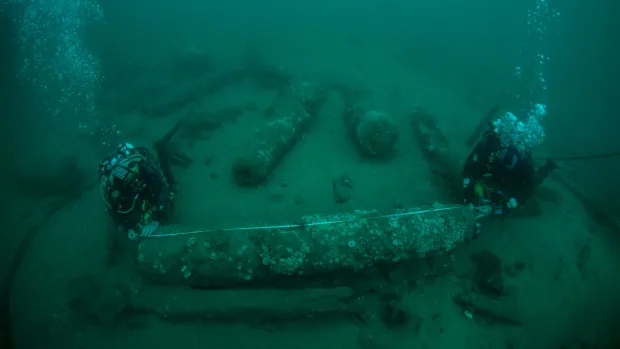A royal warship that sank off the east coast of Britain more than 300 years ago while carrying a future king was unveiled by researchers on Friday who had kept the discovery secret for 15 years to protect the wreck from damage.
In 1682, King James II of England, who was the Duke of York at the time, managed to narrowly escape the sinking ship named The Gloucester, which went down off the coast of eastern England after hitting a sandbank. He became king of England, and King James VII of Scotland three years later.
“The discovery promises to fundamentally change understanding of 17th-century social, maritime and political history,” said Claire Jowitt, professor of early modern cultural history at University of East Anglia.
“It is an outstanding example of underwater cultural heritage of national and international importance.”
Its final location, some 45 kilometres off the coast from Great Yarmouth, was a mystery until it was discovered by diving brothers Julian and Lincoln Barnwell in 2007, after a four-year search.
“On my descent to the seabed, the first thing I spotted were large cannon laying on white sand — it was awe-inspiring and really beautiful,” said Lincoln Barnwell.

The shipwreck revealed various historical artifacts, including a bottle bearing a glass seal with the crest of the Legge family — ancestors of the first U.S. president, George Washington.
“Because the ship sank so quickly, nobody would have rescued anything,” Jowitt said, describing it as “a fantastic time capsule.”
Other artifacts include navigational equipment, personal possessions, clothes and wine bottles, some with their contents intact.
The university estimated that between 130 to 250 people might have died in the incident, which they said had threatened to change the course of history.
Six years after the sinking, the Catholic James II was ousted by the Protestant William of Orange in the 1688 “Glorious Revolution,” paving the way for the future constitutional monarchy in Britain.



